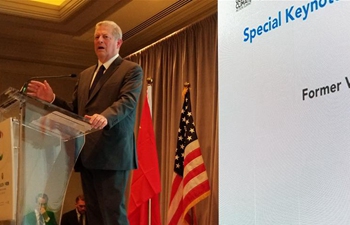BERLIN, Sept. 14 (Xinhua) -- A 69 percent majority of working mothers with underage children worked part-time in Germany in 2017 compared with only 6 percent of working fathers, official figures published on Friday by the Federal Statistical Office (Destatis) show.
This gender gap is typical of the so-called "modernized breadwinner model" which describes a family in which the father works full-time while the mother only works part time, according to the German Institute for Economic Research (DIW).
Speaking to Xinhua on Friday, Mark Fallak from the Institute of Labor Economics (IZA), attributes the gender gap in part-time employment to three main factors. First, "many families adhere to the traditional male breadwinner model". Secondly, "there is still a shortage of high-quality, affordable daycare facilities" for children and thirdly, the German tax system would create "disincentives for both parents to work full time".
According to a study from February by the Institute of the German Economic Institute (IW), Germany lacks almost 300,000 places at daycare facilities for children under the age of three.
Across the country, mothers in western Germany are much more likely to work in part-time jobs compared to eastern Germany. In 2017, 49 percent of mothers with small children worked part-time in eastern Germany compared with 74 percent in western Germany.
Female labor market participation is generally higher in the east than in the west. This divergence reflects the different historical and socio-economic backgrounds of the two regions.
The results are based on a micro-census for which 1 percent of German households are surveyed annually. Only persons aged 15-64 living in the same household are included in this survey.












